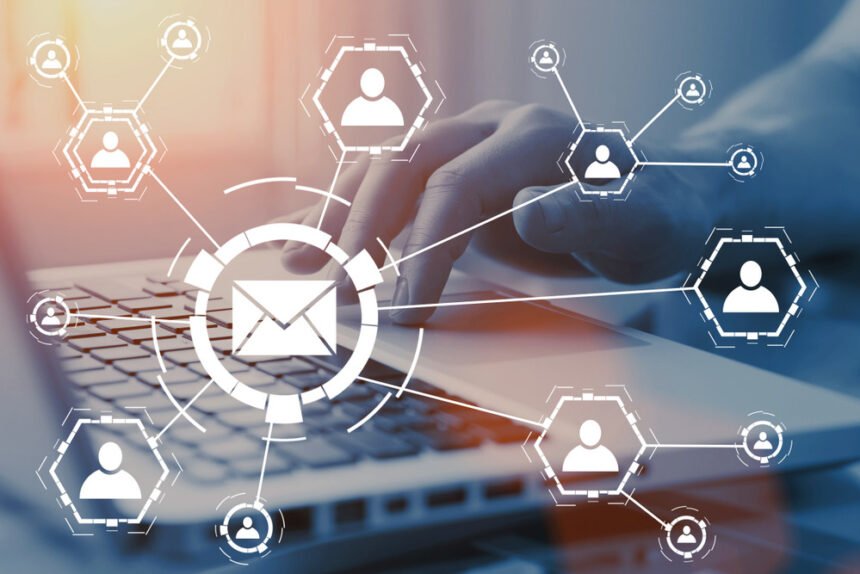Data security has become a much bigger concern to companies around the world. They need to implement new data security measures to guard against cybercriminals.
Amid the global economic crisis, we embrace a new norm, which involves working remotely or from home, and adjusting operations, while companies choose a more secure network. Although there are many benefits to working from home, there are also several concerns for most businesses, including email data security. It is important to implement the right data security tips to protect your email content from hackers.
Why Do You Need to Secure Your Email Data?
Email is a crucial channel through which cyber threats infect most organizations. In email phishing, for instance, you might be tricked into divulging sensitive information, agreeing to a fake bill, or downloading malicious files that can go directly to the company’s network. All of these things can compromise your data.
A growing number of hackers and geeks exploit businesses of all sizes and types by misconfiguring cloud sources and lacking secure expertise and resources, leading to launching more dangerous email-based attacks. As the risk continues to rise, several safe mail services assist and ensure optimum email security design to protect businesses from various threats and damaging malicious malware.
Recent security research indicates that email phishing activities have increased by 600% in response to the pandemic. In the event of a successful email phishing attack, irreparable damage can be done to the company’s credibility and financial and operational losses.
Here are several email data security approaches to the business industry on how to protect their network, data, and users from ransomware, phishing, and persistent attacks through emails;
- Invest in a good digital hygiene
One way to safeguard yourself against potential email attacks is to secure your system, patch OS and applications, and never interact with email phishing and spam. Integrating layered, attack-ready tied solutions that can detect highly evasive cyber threats from the source.
A fileless malware can exploit trusted system solutions, remains undetected by the standard security software, and slowly damages your network and devices, leaving it good for nothing and sensitive files completely lost or infected.
- Think before opening a suspicious email
Properly analyze every email you received and never click embedded links or download files in all forms. Check details including;
- Do recipient and sender addresses make any sense?
- Does order confirmation correspond to previous purchases?
- Does it seem too-good-to-be-true?
If any suspicious activity, you can always verify first from the sender or call for a legitimacy check to prevent a possible data leak.
Proven Tips on How To Secure Your Data
Below are best practices and proven ways to improve email security and stay safe while online. It’s more than essential for individuals and businesses to ensure they have top-notched email protection and put this on top priority to improve safety and remain safe from increasing digital risks.
1. Enable Two-Factor Authentication
2FA (two-factor authentication) is a straightforward approach to increasing your security. Two-factor authentication provides an additional layer of protection that saves data in case of a compromised password. It’s an excellent way to enhance your email security.
This process is a combination of a strong password and verification steps. There are plenty of authentication options. Several hacking cases redirect the victim’s SMS to the hacker’s SIM card, making texting less credible. Try using security keys or authentication apps instead.
2. Set Strong Passwords
We’re not going into painstaking detail about why you need to do this. However, research shows that the majority of internet users are still using easy-to-guess and weak passwords. To improve your email data security, you’ll need to use or generate a secure password.
3. Encrypt Your Emails
Encryption is one of the key factors to secure your data. This protects extra sensitive information from your emails from getting spied on, intercept, or snooped on. Only those that have the key can open an encrypted email, which means the password.
4. Watch Out Email Phishing
One of the significant risks of emails is a phishing attack. This varies from other types of cyberattacks and exploitations as this completely varies on deception. A hacker will send you an email, and this email imitates a legitimate or credible organization, business, company, or institution—payment platforms (PayPal), government organizations, and banks.
Phishing emails convey CTAs and fear. Often, they’ll provide notice that your account or card is blocked or you haven’t paid your credit balance. The primary purpose of email phishing is to redirect you to the fake site and enter your login details, sensitive information, and the likes for hackers to access your credentials.
Understanding the nature of one attack can help you identify and disregard one. For most beginners, any suspicious email that offers good deals or implies panic on your end should be taken into careful consideration. Never click links right away.
5. Never Download Suspicious Files
Aside from email phishing, hackers also embedded downloadable attachments that contain malicious malware and viruses. Before opening any links on the emails, use built-in functionalities from the webmail provider.
Furthermore, there are plenty of security solutions to a safe environment and prevent security issues.
Email Data Security Needs to Be a Top Priority
Besides the data protection tips mentioned above, you need to take extra care of your device’s security. Protecting your devices—laptop, tablet, or phone using a solid PIN password is essential. Several email applications allow you to improve safety.

